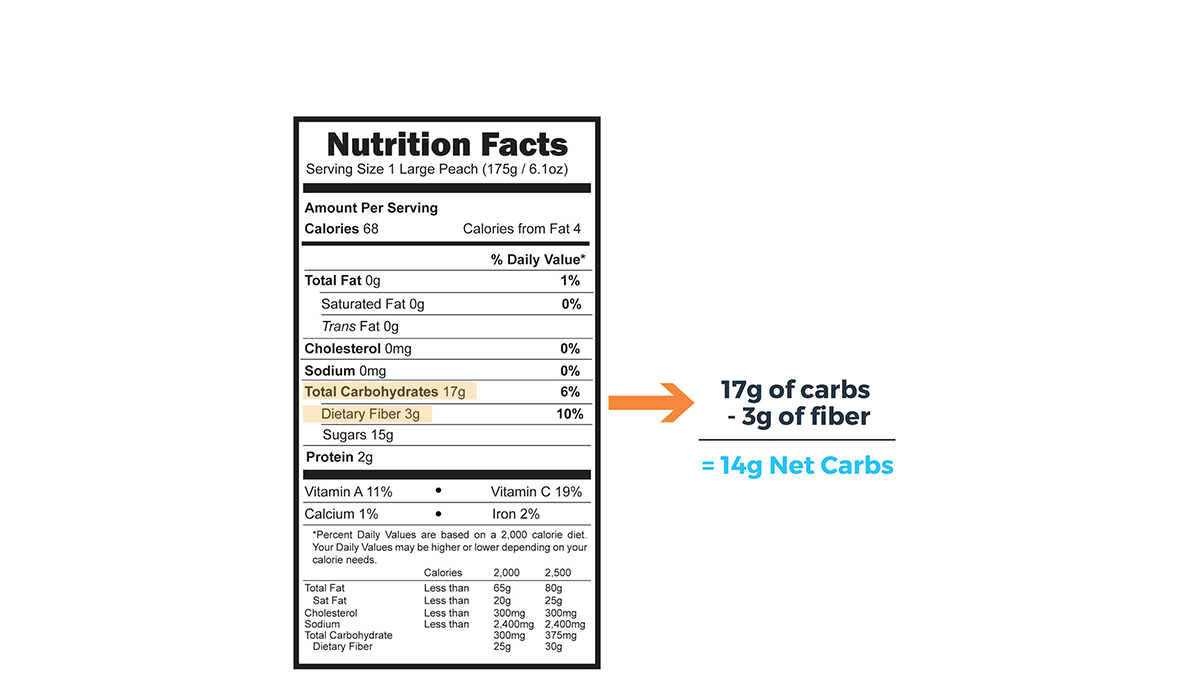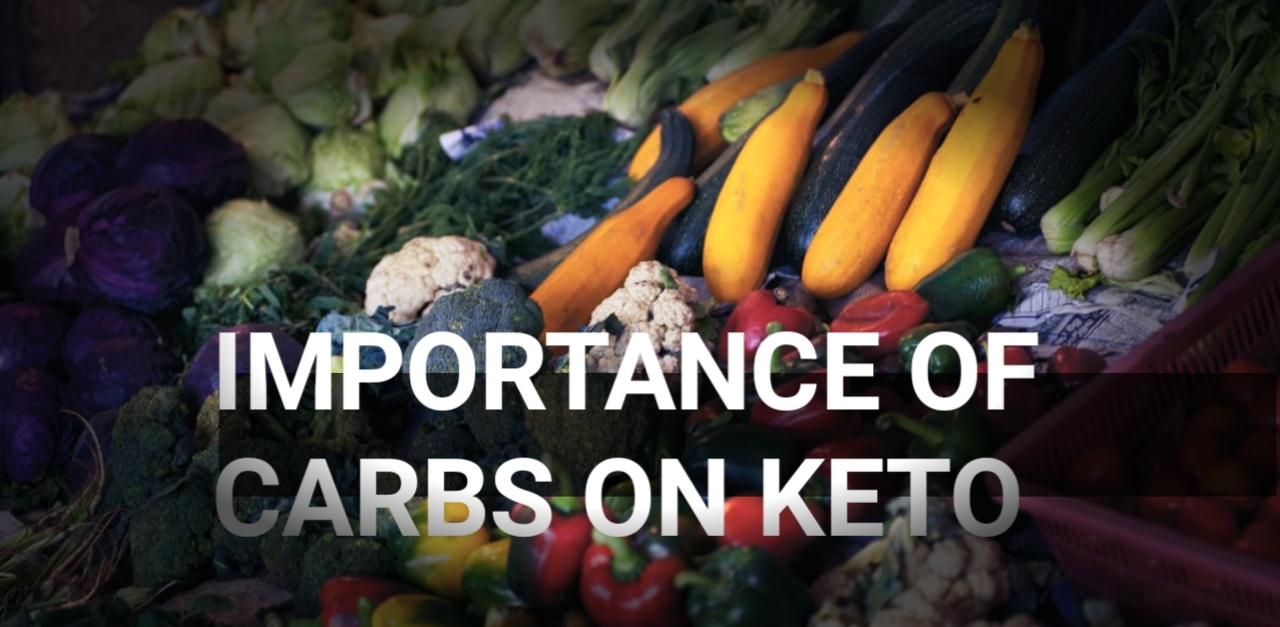On a keto diet, a person eats foods that have high-fat and very low carbohydrate levels. The diet does not include a wide range of foods including some fruits and vegetables as well as slices of bread, beans and legumes.
This article looks at carbs importance on a keto diet.
What are carbs?
Carbohydrates 1 of 3 macronutrients (nutrients that form a large part of our diet). The others are fats and proteins.
Hardly any food contains only 1 nutrient, and most of them are a combination of carbohydrates, fats and proteins in different amounts.
Food contains 3 different types of carbohydrates: sugar, starch and fiber.
Sugar
The type of sugar that most adults and children consume in large quantities in the UK is called free sugar.
These are sugars that are added to food or drink, such as biscuits, chocolates, flavoured yoghurts, breakfast cereals and fizzy drinks.
Sugars in honey, syrups (such as maple, agave and golden syrup), nectar (e.g. bloom), and unsweetened fruit juices, vegetable juices and smoothies naturally, but are still counted as free sugars.
Starch
Starch is found in foods coming from plants. Starchy foods, such as bread, rice, potatoes and pasta, provide a slow and steady release of energy throughout the day.
Fiber
Fiber is found in the cell wall of foods coming from plants. Good sources of fiber include fruits and vegetables, whole grain bread, whole grain pasta, and pulses (beans and lentils).
Why do we need carbs?
Carbohydrates are important to your health for several reasons.
Energy
Carbohydrates should be the main source of your body’s energy in a healthy, balanced diet.
They break down into glucose (sugar) before being absorbed into your blood. Glucose then enters your body cells with the help of insulin.
Glucose is used by your body for energy, to boost your activities.
Unused glucose can be converted into glycogen, which is found in the liver and muscles.
If more glucose is consumed then stored as glycogen, it is converted into fat for long-term storage of energy.
Starchy carbohydrates that are high in fiber release glucose in the blood slower than sugary foods and beverages.
Disease risk
Fiber is an important part of a healthy, balanced diet. It can boost good bowel health, reduce the risk of constipation, and some forms of fiber have been shown to lower cholesterol levels.
Research suggests that a high diet in fiber is linked to lower risk of cardiovascular disease, type 2 diabetes and bowel cancer.
A lot of people don’t get enough fiber. On average, most adults in the UK get about 19 grams of fiber a day. Adults are advised to eat an average of 30 grams per day.
The consumption of recommended fibre for children can vary from 15 grams to 30 grams depending on their age.
Calorie Intake
Carbohydrates contain fewer calories per gram than fat; 4 calories per gram for carbs and 9 calories per gram for fat. In addition, starchy foods can be a good source of fiber, which means they can be a useful part to maintain a healthy weight.
Replacing fatty, sugary foods and beverages with high fiber starchy foods, it is more likely that you will reduce the number of calories in your diet. Also, high fiber foods are included in your diet in large quantities, which helps you feel full.
How are carbs processed and used in the body?
Your digestive system breaks the carbs into glucose or blood sugar. Your blood flow absorbs glucose and uses it as energy to fuel your body.
The amount of carbs you consume affects blood sugar. Taking a lot of carbs can increase blood sugar levels. High blood sugar (hyperglycemia) can put you at risk of diabetes. Some people who do not consume enough carbs have low blood sugar (hypoglycemia). (*)
Have a look at: Indian low carb high protein recipes
How do carbohydrates actually work in the body? After eating carbohydrates, they break down into small units of sugar (glucose, fructose and galactose) in the stomach and small intestine. These small units are absorbed into the small intestine and then enter the bloodstream where they travel to the liver.
Fructose and galactose are further converted into glucose in the liver. Glucose is a form of carbohydrate that is transported by blood flow to various tissues and organs, including the brain, where it is used as energy throughout the body. (*)
What carbohydrates should I be eating?
Data from the National Diet and Nutrition Survey, which looks at food consumption in the UK, shows that most of us should eat more fiber and starchy foods and fewer sweets, chocolate, biscuits, pastries, cakes and soft drinks that contain extra sugar.
Fruits, vegetables, pulses and starchy foods (especially high fiber varieties) provide a wider range of nutrients (such as vitamins and minerals), which are beneficial for health.
Fiber in these foods can help keep your bowel healthy and adds bulk to your food, helping you feel full.
Till now you have gotten a little bit of idea about carbs. Let’s stay in the post to know “How carbs play a major role in a Keto diet?“
Carbs on Keto to stay in Ketosis
On keto, you are trying to transition to a fat-burning metabolic condition where you burn ketone – instead of glucose – as your body’s primary energy source. To do this, you will need to eat large amounts of fat, switch to moderate protein intake and keep your daily carb intake at absolute minimum.
To enter ketosis, you need the right proportion of carbohydrates, fats and proteins. Which leads to a common question: How many carbs should you eat on keto?
In a standard American diet (SAD), you can eat 100-150 carbos per day and still be considered low carbs. Unfortunately, it will not convert your body into a fat-burning condition of ketosis. On a keto diet, your carb number will be very low, often between 25-50 grams of carbs per day.
Indian low carb diet for weight loss
How do carbs work on keto?
What happens if you don’t eat enough carbs on keto?
It may be noted that limiting the intake of carbs burns fat instead of carbs for body energy. As a result, glucose levels fall.
It forces the body to produce ketones, acids that appear in blood and urine when fat burns in the body. When the body uses fat as energy and releases ketones, it is called ketosis.
During ketosis, the body also produces less insulin, and as a result, it accumulates less fat.
Keto diet can help in weight loss, if it is a goal, by reducing appetite levels and increasing metabolism. It can also help manage type 2 diabetes as the diet can lower glucose levels.
You may also like to read: keto diet side effects
How to calculate your carb intake on keto diet?
For anyone on the keto diet, it’s important to consider the number of “net carbs” in food.
How to calculate net carbs
You can easily calculate net carbs and track the number of net carbs you eat throughout the day using this basic two-step formula.
Step 1 – Define total carb content
Start by reading the nutrition label and determine the grams of total carbs, grams of fiber and sugar alcohol. The grams of total carbs listed on the food label are total carbohydrates.
Step 2 – Subtract Dietary Fiber
To calculate pure carbohydrates, take total carbohydrates and subtract both grams of fiber and sugar alcohol. The remaining amount is the total net carb count.

Your net carb will always be less than or equal to your total carbohydrates.
Best carbs to eat on keto diet
By choosing your carbs wisely you should be able to keep your blood sugar within healthy limits, nourishing your body with important vitamins and minerals. Including some carbs in your diet can make your low carb lifestyle more durable, fun, colourful and varied.
Also read: what to avoid in a low carb diet
Here are some of the best sources of carbs on a keto or low carb diet:
- broccoli
- pickled mango
- pickled mango
- leafy greens
- asparagus
- avocado
- macadamia Nuts
- pumpkin Seeds
- raspberry
Ketogenic diet food list for weight loss
Benefits of restricting carbs
A keto or low-carb diet offers many benefits, especially for people who want to keep their blood sugar under control or lose weight:(*)
- Low levels of blood sugar and insulin.
- Elimination of Carb Craving.
- Powerful hunger control.
- The ability to stay for several hours without eating because of feeling full and satisfied.
Caution:
Before starting a keto diet, contact a doctor to make sure that the change will be safe.
Remember to share this article on “Carbs importance on a Keto diet” with your friends.
Sharing is caring ❤️
You may also read:
weight loss drinks that boost metabolism
low carb keto diet for beginners
keto diet weight loss per week
Most ketogenic diets recommend staying between 25 to 30 gm net carbohydrates per day or 5 to 10% of total calories. In general, if you are a very active person who exercises 4-5 times a week, you are more likely to consume more carbohydrates and stay in ketosis.
Ketosis can cause side effects such as bad breath, headache, fatigue and weakness. It is unclear what kind of potential long-term health risk a low carb diet can pose. Prolonged restricting carbs can result in vitamin or mineral deficiency and gastrointestinal disorders.
For anyone on a keto diet, it is important to consider the number of “Net carbs” in foods. A person can calculate the number of pure carbs in a serving by reducing the amount of fiber from the total number of carbs. If food is processed, a person should also reduce half the amount of sugar alcohol.
You need to keep your carb intake below 30gms per day in order to stay in ketosis and continue burning fat for energy.
